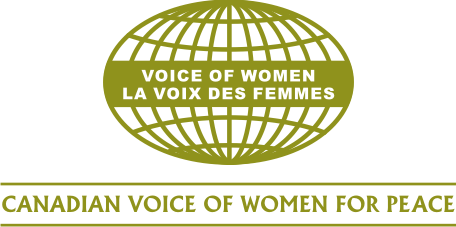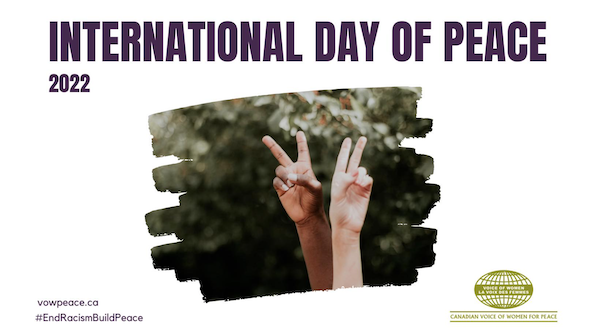By Sarah Rohleder, VOW Disarmament Campaign Intern —
This past International Day of Peace, we were invited to recognize the racism within our own communities that threaten peace and security, with the theme “End racism. Build peace.” For we cannot adequately handle other issues until we face the inequality permeating in our own societies.
To address these issues, we must focus on an intersectional approach, understanding that many of these issues affect people in multiple ways. One area of particular concern is the way in which the military and the systems we rely on for defence discriminate and further perpetuate colonialism in addition to exacerbating climate change. Here in Canada, we have a prime example of how militarization can further racism, modern colonialism and climate change with the governments fight against Indigenous land defenders. The Wet’suwet’en are currently attempting to stop the construction of a pipeline on their lands, with the RCMP having so far sent three militarised raids on their resistance camps complete with assault rifles, dogs and chainsaws, with helicopters circling overhead for over a week. Arrests have been made, with the land defenders and journalists being taken away at gunpoint despite none of them having weapons.
Movements like this are vital for the very survival of both humanity and our planet yet they face the hardest push back from both corporations and governments.
This International Peace Day is a call to recognize how our capitalist systems are still seeking to deprive people of their rights. Prime Minister Justin Trudeau said in a statement for the International Day of Peace “Canada has long been a leader in international efforts to advance peace, and continues to be a strong voice for human rights.” This is at odds with the action taking place within Canada, with the government actively enabling the destruction of Indigenous lands, violating their commitments to UNDRIP including under article 8 2.b stating “states shall provide effective mechanisms for prevention of, and redress for: any action which has the aim or effect of dispossessing them of their lands, territories or resources.”
Despite promises to respect Indigenous rights, Indigenous peoples once again find their rights being violated by the Canadian government. This is a cycle of injustice with promises made and broken, and nobody held accountable, not to mention most Canadians unaware of these issues.
However, in this year’s theme of ending racism and building peace we have the opportunity to start addressing some of these issues, and education is key to mobilizing more people in this fight. As the UN Secretary General Antonio Gutteres said, “the task of building peace belongs to every person.”

